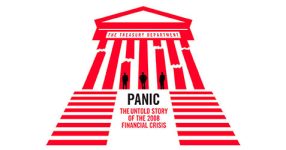In the realm of documentary filmmaking, Michael Moore’s “Sicko” stands as a thought-provoking exploration of the intricate web that is the American healthcare system. Released in 2007, this groundbreaking film takes viewers on a compelling journey through the labyrinth of health insurance, pharmaceutical giants, and the stark contrast between the U.S. approach and other nations. Let’s delve into the documentary’s key revelations and its impact on the discourse around healthcare.
The Healthcare Landscape Unveiled:
“Sicko” meticulously dissects the American healthcare scenario, spotlighting the staggering number of uninsured individuals and the struggles faced by those fortunate enough to be covered. Moore’s lens captures poignant interviews with victims of insurance company malpractices, exposing the dark underbelly of profit-driven decisions that compromise patient well-being. The film starkly reveals the World Health Organization’s ranking, placing the U.S. at 37 out of 191 countries, raising questions about the effectiveness of the current system.
Historical Backdrop:
Venturing into the historical roots of the American healthcare debate, “Sicko” provides a backdrop that challenges opposition to universal healthcare. Moore skillfully juxtaposes 1950s-style anti-communist propaganda with the present-day reality, debunking fears of lost freedoms and socialism. Drawing attention to socialized public services like police and fire departments, Moore deftly illustrates that such systems have not led to communism in the United States. This historical perspective serves as a powerful tool in reshaping the narrative around healthcare reform.
Global Contrasts:
One of the documentary’s standout features is its global perspective, comparing the American system with healthcare models in Canada, the United Kingdom, France, and even Cuba. Moore’s lens captures the disparities in quality, cost, and accessibility, driving home the point that alternatives to the profit-oriented U.S. approach exist. Through interviews with patients and doctors abroad, the film paints a vivid picture of the stark differences, challenging viewers to question the status quo.
A Cinematic Advocacy for Change:
Directed by Michael Moore, “Sicko” transcends the boundaries of traditional documentary filmmaking. It is a rallying cry for change, urging Americans to ponder the fundamental question: “Who are we?” The film critiques the violence-laden American culture explored in Moore’s previous works, such as “Bowling for Columbine,” and shifts its focus to the healthcare crisis. By highlighting the plight of the uninsured and the abuses suffered by the insured, “Sicko” lays bare the profit-driven motives of the pharmaceutical industry.
In conclusion, “Sicko” emerges as a compelling testament to the urgent need for reform in the American healthcare system. With its rich tapestry of personal interviews, historical context, and global comparisons, the documentary serves as a catalyst for societal introspection. As we navigate the complexities of healthcare, Moore’s lens becomes a powerful tool, compelling us to rethink our assumptions and challenge the status quo. “Sicko” isn’t just a documentary; it’s a call to action, challenging us to redefine the narrative around healthcare in the United States.












